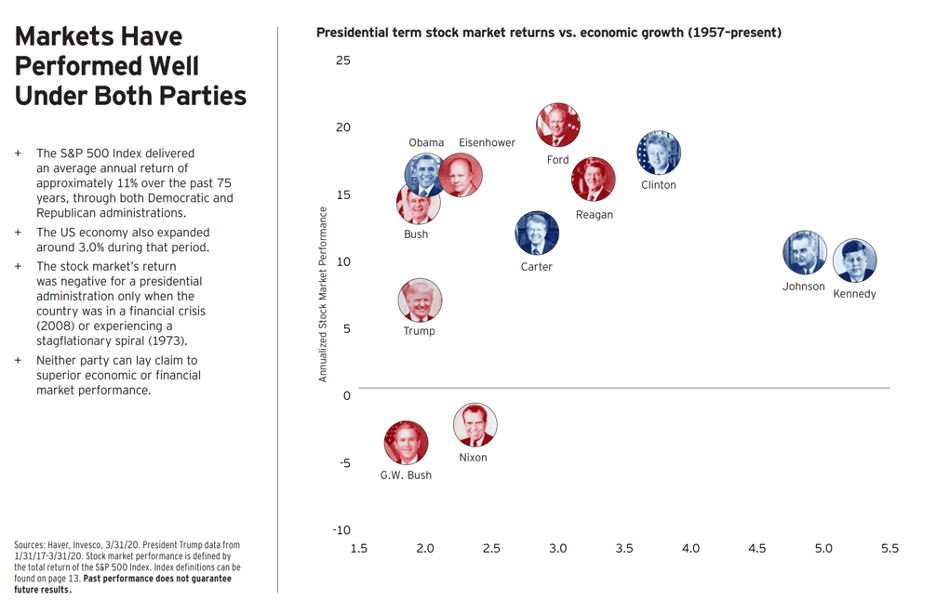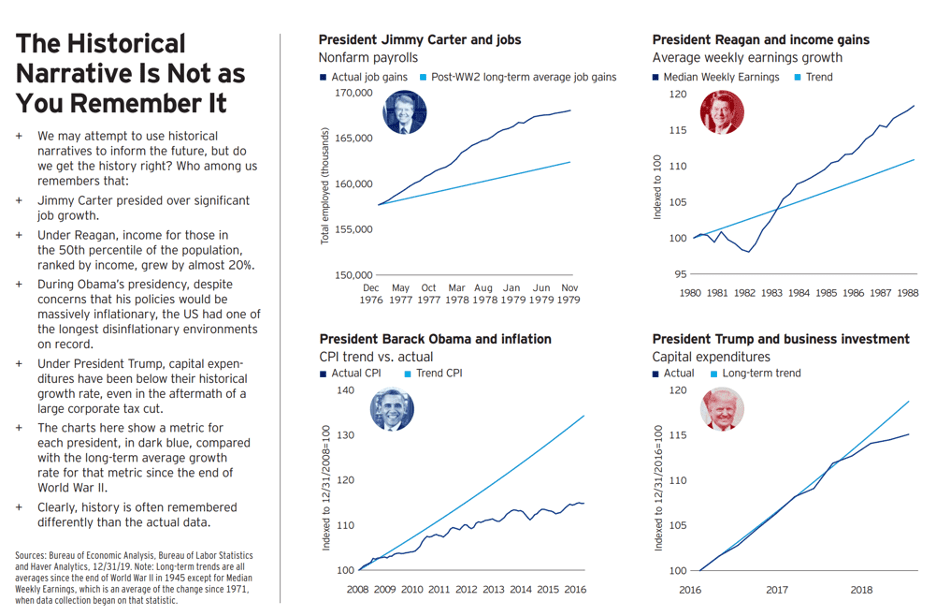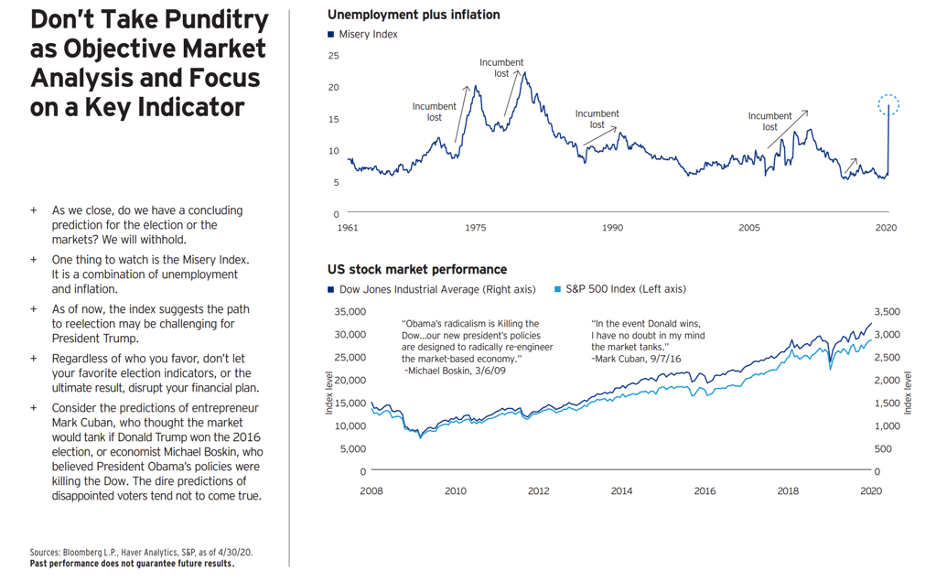2020 Us Presidential Election - What We Thought We Understood About Politics and an Election Year
We are in an election year and my experience tells me that this Seller’s market will slow a bit as we head into late September. Why does this happen? Uncertainty. We are uncertain of what will occur based on who is elected. Uncertainty causes most people to take pause and watch and wait. However, historically what typically happens is that the Fall market pauses in response to uncertainty and then we have a strong Spring market due to pent up demand.
This article below changed my entire understanding of markets, performance and a political party’s influence on the market. This would also include the housing market and interest rates so read on and maybe you will have a new understanding of a misrepresented historical narrative.
Author, Brian Levitt, Global Markets Strategist, North America
Coronavirus has upended the traditional cadence of an American presidential election year. 2020 is still an election year, however, and the campaigns will go on. While the election will have a momentous impact on the country, one area where we caution investors from drawing too many links to is the world of investing. Politics and investing have always been spoken about in the same breath. Market commentators, and even presidents themselves, have linked the performance of the stock market as a sort of “barometer” of the effectiveness of a president’s policies. The data don’t support this link, and investors would be wise to think critically before making an investment decision based on who’s occupying the White House. Over the past 120 years, the long-term performance of the market has shown almost no correlation with government policies. Instead, the key drivers of stock market performance have been earnings and economic growth. Much of our collective memory about the performance of the economy under various past presidents stems from historical narratives, not hard data.
Other factors – like the decisions made by the US Federal Reserve – have a much greater impact on market sentiment than any sound bite we hear from politicians. Several years ago, we coined a phrase that bears repeating: “Hating the government is not an investment strategy.” This election season will be no different from the prior ones, and investors should brace themselves for vitriol on both sides of the political spectrum. Rest assured, investors have prospered in markets even during difficult political times. The average return of the S&P 500 Index is approximately 11% since the end of World War II, even though we’ve had impeachments, additional wars and ambitious new spending. While we can’t say with any certainty who will win in November 2020, we can say for sure that staying the course has always made the most sense for investors. Even in the middle of a recessionary environment related to the impact of COVID-19, investors should focus on staying buckled in and look past the headlines to the underlying story that really matters. What Lincoln said in the nineteenth century remains wise advice for 2020: stand firm.
Our 10 Truths No Matter Who Wins
1. Markets have performed well under both parties.
2. Investors are better off staying fully invested.
3. We do not radically re-engineer the US economy.
4. The historical narrative is not as you remember it.
5. Signature legislative accomplishments are infrequent, and the impact is not always as expected.
6. Predictions tend to be wrong.
7. Monetary policy matters more.
8. It’s okay if you don’t like the President. The market doesn’t care.
9. No, this is not the most vitriolic election.
10. Don’t confuse partisan politics with market analysis and keep your eye on one indicator.


